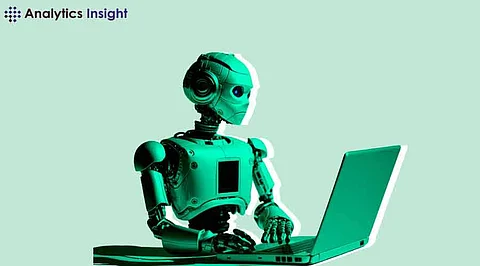

Google's push into artificial intelligence keeps on growing, and 2025 brought a notable entry in the Data Science Agent. Introduced as part of Google's overall AI system, the Data Science Agent seeks to make data analysis, modeling, and prediction work simpler tasks that typically fall to human data scientists. As of March 31, 2025, arguments storm its potential and implications, i.e., if it will become a threat to jobs in data science or if it is an auxiliary resource.
Data Science Agent first appeared somewhere in late 2024 inside Google Colab, a programming and data analysis platform commonly used among programmers and analysts. Built atop strong machine learning libraries, it leverages the vast computing powers of Google to define and execute advanced workflows. Functionalities vary from data cleaning, exploratory analysis, feature engineering, and model deployment, all work requiring hours from experts.
Natural language processing integration allows for commands in the form of text requests, e.g., "analyze this dataset for trends," and return results with visualizations and statistical summaries. Early tests have demonstrated it to be able to handle a 100,000-row dataset in minutes, a reflection of its efficiency.
Strength is the speed and scalability of the agent. Powered by Google's Tensor Processing Units, it handles big data and iterative modeling much faster than traditional software like Python or R on standard hardware. Predictive task accuracy, including regression or classification, is on par with outputs from experienced practitioners due to pre-trained algorithms that have been fine-tuned on varied data.
Yet, there are still limitations. Sophisticated problem-solving involving domain knowledge, such as understanding subtle business contexts, continues to be a challenge. The agent is best suited for execution rather than strategic reasoning, implying an automation versus intuition gap.
Controversy revolves around how the agent would impact jobs. Repetitive tasks, for example, preprocessing data or statistical modeling, stand to lose most to automation. Junior positions that are typically engaged in repetitive coding or report runs may witness dwindling demand with the tool now doing it for them. On the other hand, senior roles requiring creativity, like experiment design or creating custom solutions, seem less at risk.
Past analogies come up with tools such as Excel, which replaced hand-bookkeeping but stimulated the need for analysts. The Data Science Agent may do the same, relocating emphasis to higher-order ability, redefining instead of obliterating the profession.
Reactions differ by industry. Tech companies, such as Google parent Alphabet, see the agent as a work enhancer, incorporating it into processes to speed up research and development. Financial and healthcare startups have used it to study market trends and patient information, saying they save on the cost of hiring experts.
Academia, however, strikes a warning note, MIT research at the beginning of 2025 warns against over-reliance on automated programmes, citing potential for errors in unmonitored outputs. Critics argue that although the agent can control volume, some element of human intervention will always be needed in dangerous fields such as medicine or policy to check results.
Data Science Agent competes against products like Microsoft's Azure Machine Learning and IBM's Watson. Azure has excellent cloud-based modeling without the convenience of the agent's easy-to-use prompt interface. Watson excels with corporate analytics but commands more setup fees. Google's product is exceptional for availability, free tiers within Colab find favor among freelancers and small businesses, whereas premium offerings go to corporations.
This stratified strategy mirrors Google's strategy with products like Gmail, with broad adoption offset by scalable profits. In contrast to open-source solutions, like Jupyter notebooks, the agent's closed-source status restricts tailoring, a compromise for its refined implementation.
Trends predict evolution over the coming decade. Enhancements may be deeper contextual understanding or compatibility with real-time data streams, opening its vistas. Labor forces can adapt by focusing on skills like AI management, ethical governance, and cross-disciplinary problem-solving, areas where human thought leads software.
Training programs, like Google's own Data Analytics Certificate, already shift toward hybrid skills, combining technical know-how with strategic acumen. The agent's ascendance parallels earlier technological transformations, from production lines to computer programs, in which accommodation, rather than obsolescence, determined results.
The Data Science Agent is part of a larger pattern of AI pushing into knowledge work. Its ability to "take over" work depends on how replacement and augmentation are defined. The evidence is pointing toward a hybrid future, automating repetitive work creating space for innovation. As Google continues to hone this tool, its legacy might be in reframing the work of data scientists, not replacing them, just as calculators transformed mathematics without ending it.
